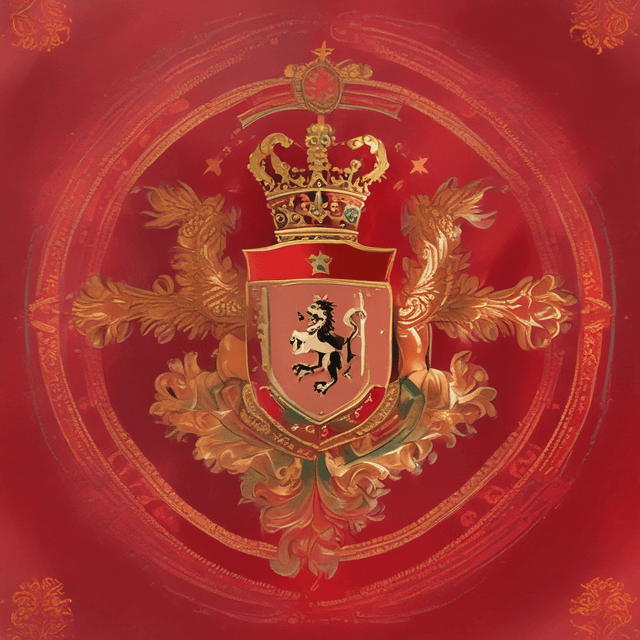
| Rivals | |
| Status | Major colonial and economic power |
| Country | |
| Culture | Distinct Iberian |
| Founded | Early 19th century |
| Territories | |
| Established by | Republican revolution against Iberian monarchies |
| Predecessor states | |
| Type of government | Federal presidential republic |
| Political tradition | Republican |
The Republic of the Twin Crowns is a federal presidential republic that encompasses the territories of the former kingdoms of Spain and Portugal. Formed in the early 19th century after a successful republican revolution against the Iberian monarchies, the Twin Crowns has become a major global power with a vast colonial empire and thriving industrial and financial sectors.
The roots of the Twin Crowns can be traced to the Napoleonic Wars and the subsequent Liberal Revolution that swept the Iberian Peninsula in the 1810s. As the French Empire under Napoleon sought to expand into the Iberian territories, growing republican and anti-monarchist sentiment among the populace culminated in a series of uprisings that overthrew the Spanish and Portuguese royal families.
In 1821, representatives from across the former kingdoms convened in Lisbon to establish a new federal republican government, drafting a constitution that created the Republic of the Twin Crowns. This new nation combined the territories of Spain and Portugal under a centralized presidential system, with a powerful chief executive and bicameral legislature. The republican revolutionaries aimed to harness the combined resources and populations of the Iberian lands to challenge the colonial empires of Britain, France, and the Netherlands.
The Twin Crowns wasted little time in asserting itself on the global stage. In the decades following its founding, the republic rapidly expanded its colonial holdings, seizing territories in the Caribbean, West Africa, Southeast Asia, and the Pacific. This colonial empire, along with the republic's industrial and financial might, allowed it to rival the British Empire and French Colonial Empire as a major world power.
Key conquests included the Philippines, Cuba, Puerto Rico, Angola, Mozambique, and East Timor. The Twin Crowns also maintained control over the Canary Islands, Madeira, and the Azores as integral parts of the homeland. Economically, the colonies provided raw materials, agricultural products, and captive markets for the republic's rapidly industrializing economy.
The Republic of the Twin Crowns is a federal presidential republic with a strong central government. The President, who serves a five-year term, is the head of state and commander-in-chief of the armed forces. Legislative power is vested in a bicameral Congress, consisting of a Senate and a Chamber of Deputies.
While the individual states that make up the federation maintain a degree of autonomy, the central government in Lisbon wields significant power over matters of national defense, foreign policy, economic policy, and the coordination of the colonial empire. This has created tensions at times between republican centralists and advocates of greater state-level autonomy.
The dominant political parties are the center-right Conservative Party and the center-left Progressive Party, though other regional and ideological factions also play a role. Universal male suffrage was established at the republic's founding, while women's suffrage was granted in the 1890s after a lengthy campaign by feminist activists.
The economy of the Twin Crowns is a complex mix of industrial capitalism, state-directed planning, and mercantilist colonial policies. Key industries include textiles, shipbuilding, mining, metallurgy, chemicals, and financial services. Major corporations are often closely tied to the political establishment, enjoying government contracts and subsidies.
Socially, the Twin Crowns retains a strong Iberian cultural identity, with the Roman Catholic Church maintaining significant influence. However, the republican political tradition has also fostered a distinct sense of civic nationalism and a commitment to ideals of equality, liberalism, and secularism. Urban centers like Lisbon, Madrid, and Porto are hubs of the arts, architecture, and intellectual life.
Migration, both within the federation and from the colonies, has produced a diverse multiracial society, though racial and ethnic tensions remain an ongoing issue. The legacy of slavery in the colonies has also left a complex and controversial imprint on the republic's history and social fabric.
As one of the world's great powers, the Republic of the Twin Crowns plays a major role in global affairs. Its extensive colonial empire, powerful navy, and large economy give it significant influence, often rivaling that of the British Empire and French Colonial Empire.
The Twin Crowns has been a champion of republican and anti-monarchist causes worldwide, supporting revolutions and independence movements in other parts of the world. At the same time, it has sometimes been accused of neocolonial exploitation of its own colonies.
Diplomatically, the republic has formed alliances and trading blocs with other like-minded nations, though it has also experienced tensions and conflicts, particularly with its European rivals. Its role in global affairs continues to evolve as the 20th century unfolds.